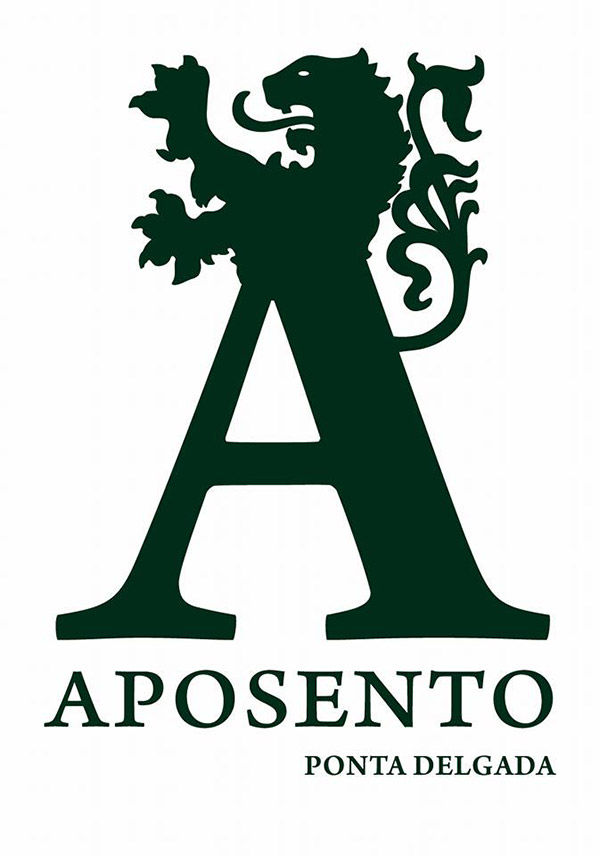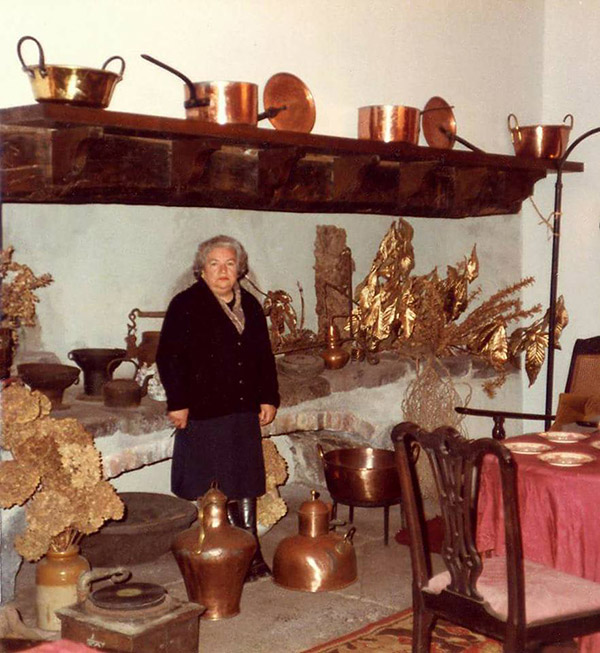 “Casa do Aposento” is a traditionally wealthy Madeiran house, in architectural tradition from the island, with examples well present on the north coast and particularly in the parish of Ponta Delgada, municipality of São Vicente. Most of these constructions were linked to agricultural properties, of greater or lesser dimension, and linked to the production of wine. In Madeira, these houses were called “solar”, gaining different characteristics from “solares” in the national context.
“Casa do Aposento” is a traditionally wealthy Madeiran house, in architectural tradition from the island, with examples well present on the north coast and particularly in the parish of Ponta Delgada, municipality of São Vicente. Most of these constructions were linked to agricultural properties, of greater or lesser dimension, and linked to the production of wine. In Madeira, these houses were called “solar”, gaining different characteristics from “solares” in the national context.
It is a construction from the mid-18th century, as it can be seen in a stone inscription dating from 1746, probably built over an older construction. It is located next to the royal path at the “Sítio do Açougue”, with a rectangular main structure, where a towering tower with windows facing the sea and mountains, stands out in a strategic position in the middle of the construction. It presents a repetition of a rectangular fenestration model, with double wooden and glass shutters on one of the doorways, framed by robust black stonework from the region. The primitive roofs have four waters and a straw tile, with double eaves.
As an agricultural property, it was accompanied by several outbuildings, for example, the occupation of the entire ground floor of shops or wine warehouses next to a wine press.
In the vicinity there is a water mill and other constructions visible inside the property, which must correspond to old stables and sharecroppers' houses.
The manor has undergone some important transformations during the 20th century, such as the construction of additions next to the kitchen and the adaptation of a small dependency, the chapel.
The backyard, next to the house, was originally paved with pebbles and also with large stone slabs in the access to the collection stores of the large barrels of wine. In this courtyard, there was a large trellis shading the ground floor.
The housing area is accessed by stairs at the ends. One has a framed stonework frame. The noblest area, which still has a room with the original floor of large brown planks, also has ceilings trough.
In the kitchen there remains a rare, double oven, with two doors, on stone slabs.
Whether in the neighboring parish of São Vicente or in Boaventura, there are several traditional houses, known as manor houses (“Solares”), with Ponta Delgada other interesting examples such as “Solar do Ladrilho”, by the family of writer Horácio Bento de Gouveia, “Casa do Pico”, towering construction placed on a dramatic landscape, with its tower overlooking the sea, referred to Agustina Bessa-Luís, in “A Corte do Norte”, also known as the house of "Meninos da Beira”.

“Casa do Aposento” was owned by Mrs. Maria Hilária Diniz Abreu de Freitas (1913-2003), daughter of Augusto Joaquim de Abreu and Maria da Conceição dos Reis Pestana, born in Ponta Delgada. Already widow of António de Freitas Júnior bequeathed, by will, to the “Região Autónoma da Madeira” the “Casa do Aposento” with its filling to be installed a museum structure, making its artistic collections known to all visitors, curious of the northern traditions of Madeira and Ponta Delgada.
The filling of “Casa do Aposento”, donated to the Region, must first of all refer to a characteristic, that it was mostly acquired in the regional antiquarian market and another part was made up of family inheritance.
It can be characterized a significant nucleus consisting of furniture of Madeiran origin from the 19th century, in wine color, tilde and brown, following models of the coeval English furniture, the great reference of the regional joinery of that century. A more eclectic set, is marked by English furniture, but also Portuguese from the late 18th and 19th centuries. In the national furniture there should be a canape made of “pau santo”, in D. José I style, with its cut back and galled legs.
Of the ensemble, a special mention is made to “Santo António”, a sculpture in upholstered, polychrome and gilded wood, dating from the mid-17th century, of a good regional workshop. The same origin can have “Nossa Senhora da Piedade”, also in the collection. From a Portuguese workshop, from the mid-17th century, it is an oil painting on canvas, placed in a frame from the mid-19th century, representing Our Lady (“Nossa Senhora”) with the Child. It is a work informed of the luminous values of Iberian and even Italian production with tenebrist effects.
In the collection, still a special reference to a carved and gilded wooden mirror, from a national workshop at the time of D. Maria I, from the end of the 18th century, beginning of the 19th century. It presents a rectangular shape with two garlands of beautiful effect. Two golden Portuguese mirrors from the mid-19th century should be highlighted aswell.
In the donation set, a mention is made to a large number of household objects, which characterize the kitchens, bedrooms or even the madeiran dining room from mid-19th century. Special note for English faience ware, stamped from the same period.
Organically, the twinning and guardianship of the “Casa do Aposento” was decided to the “Quinta das Cruzes” Museum. In addition to administrative operation, it was understood that the connection of the two structures would make sense, safeguarding their respective dimensions, as the “Quinta das Cruzes” Museum, as a funchal’s farm, has an agricultural house in reverse, helping to trace differences and proximity between construction in urban and rural areas.
To the inaugural presentation of the “Aposento’s” collections, pieces from the collections of the “Quinta das Cruzes” Museum were added, for a more coherent harmonization of stylistic periods, and to reinforce the dimension of the house to the Madeiran taste in the 19th century and 20th century.
“Solar do Aposento” was classified as a property of local cultural value in 1993 and in 2001 as a property of municipal interest.
Institution in charge:
“Direção Regional da Cultura”
Coordinator:
Dília Freitas
Address:
Rua Dr. Manuel Escórcio, nº 22, 9240 - 101 Ponta Delgada, São Vicente
Telephone:
(351) 291 644 563
Email:
Opening hours:
Tuesday to Saturday, from 10a.m. to 4p.m.
Closed on Monday, Sunday and public holidays
Tickets:
Youth (13 to 25 years old) - € 1.50
Adult (26 to 64 years old) - € 3.00
Senior (65 years old or older) - € 1.50
Group (more than 6 people) (price per person) - € 2.50
Family (at least 1 adult and at least 1 minor) - € 5.00
More information about the conditions
Guided tours:
By appointment.